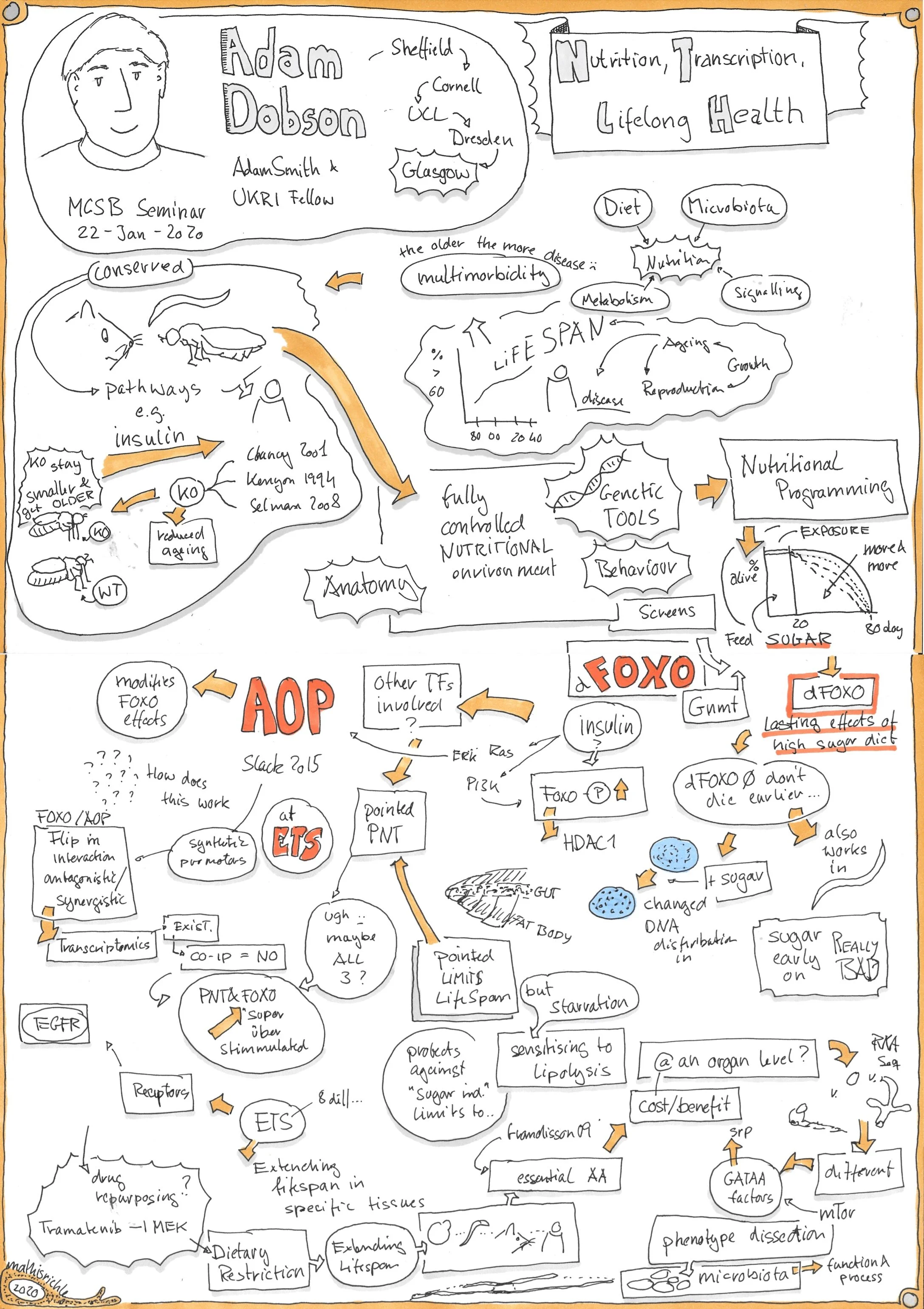Adam Dobson
Principal Investigator,
UKRI Future Leaders Fellow,
LKAS Leadership Fellow,
emailer-in-chief.
I’m interested in how gut microbiota and diet shape what animals do. The goal is an integrative view of microbes, diet, signalling, metabolism, and gene regulation, and to understand how those systems underpin phenotype.
Outside the lab, I am happiest climbing a mountain.
Key research to date
Microbiota structure the host transcriptional network
Why are hosts so dependent on their microbiota for normal, healthy function? This study showed that this influence extends to regulating expression of the host genome. In germ-free flies, the coordinate regulation of ~30% of all genes was disrupted, including genes that regulate metabolism, lifespan and immunity. This impact on highly-conserved genes is consistent with an ancient origin for microbial regulation of animal health.
Host genetic variation in response to microbiota
Are all hosts created equal? Perhaps not: metabolic responses to eliminating microbiota vary genetically amongst distinct Drosophila lines. Mapping this genome-wide reveals multiple points of entry for microbiota to regulate host phenotype.
Sugar programs lifespan via dFOXO
Sugary, processed foods have persistent health costs, which last even after dietary improvement. How? Here we showed that a high-sugar diet precipitates lasting reprogramming of gene expression and an early death, mediated by a conserved, lifespan-determining transcription factor (dFOXO/DAF-16).
ETS factors regulate lifespan
Across animals, reprogramming transcription can improve late-life health. But which regulators to target? This paper showed that the majority of the evolutionarily-conserved ETS family of transcription factors regulate fly lifespan - as well as showing novel metabolic roles for these genes - and that this same family can also be targeted to promote nematode lifespan.
Microbes dictate diet’s physiological impacts
Do microbiota mediate effects of dietary changes? And does elimination of microbes have different effects on distinct diets? Rearing flies with or without microbiota across a range of systematically-varied diets showed that microbes and diet have highly co-dependent effects.
GATA factors mediate DR lifespan effects
Dietary restriction extends lifespan across animals, but how? By profiling the response of gene expression across fly tissues, we predicted and then confirmed a critical role for the conserved GATA family of TFs.
C.V.
2019 - present
UKRI Future Leaders Fellow / Lord Kelvin Adam Smith Leadership Fellow.
Institute of Molecular, Cellular and Systems Biology, University of Glasgow, UK.
2019
DRESDEN Junior Fellow.
Lab of Klaus Reinhardt.
Technische Universität Dresden, Germany.
2014 - 2019
Postdoc(s).
Labs of Nazif Alic & Matt Piper.
Institute of Healthy Ageing, UCL, UK.
2012 - 2014
Postdoc.
Lab of Angela Douglas.
Department of Entomology, Cornell University, USA.
2008 - 2012
PhD
Supervisor: Jens Rolff.
Dept. Animal & Plant Sciences, University of Sheffield.
2005 - 2008
BSc Biology
Dept. Animal & Plant Sciences, University of Sheffield.
Sketch note summary of research
Courtesy of Mathis Riehle @morenorse







